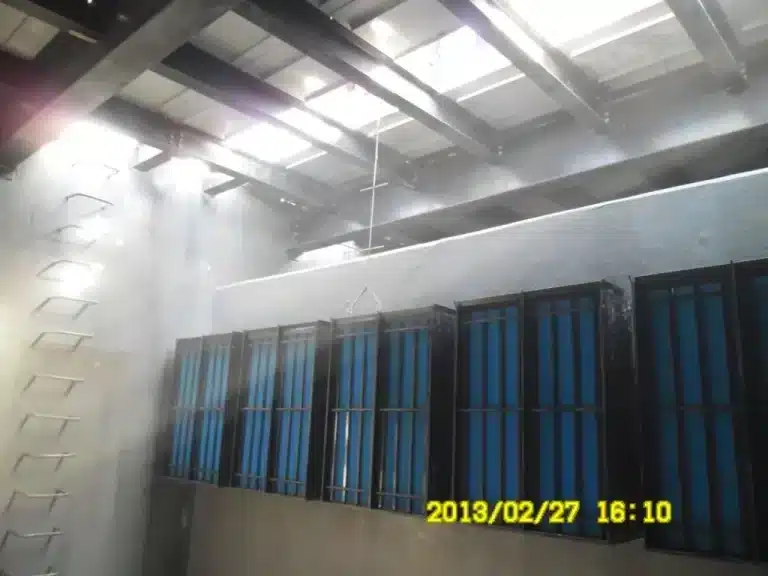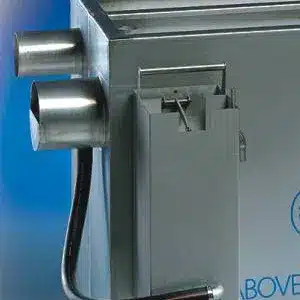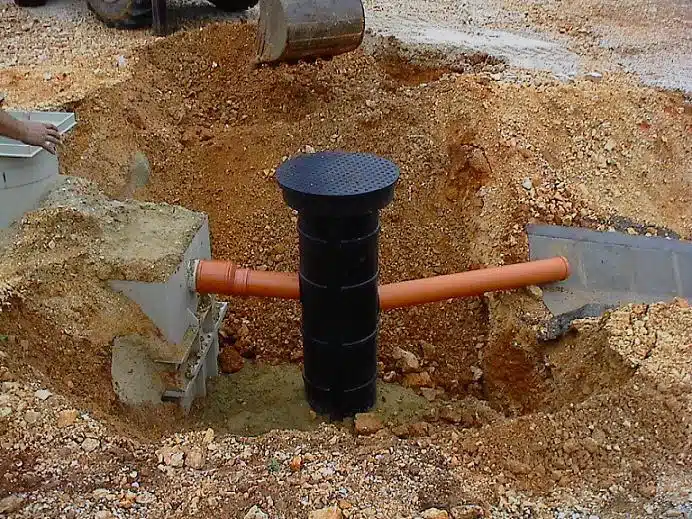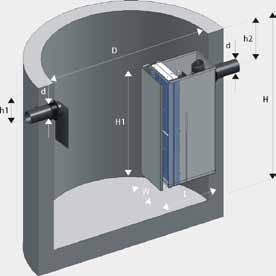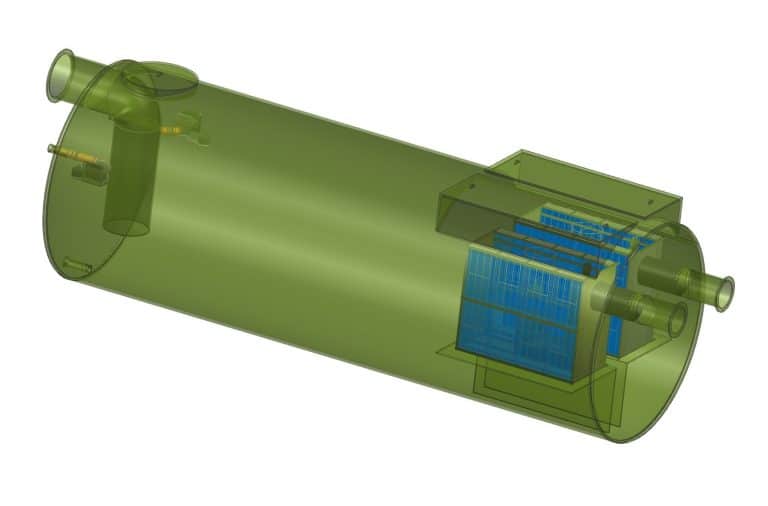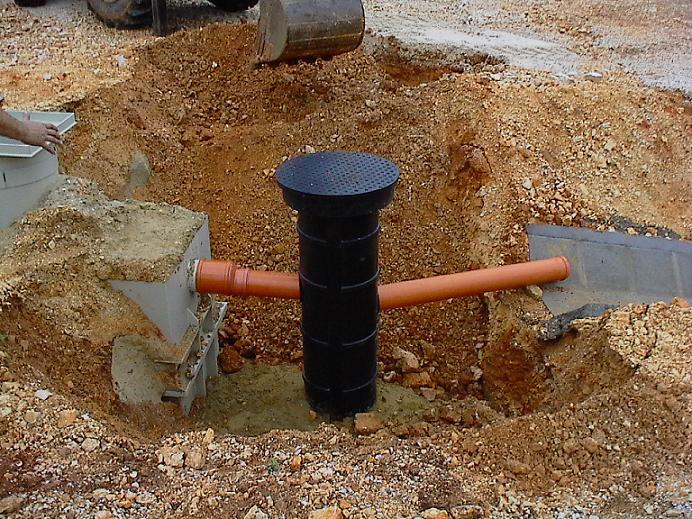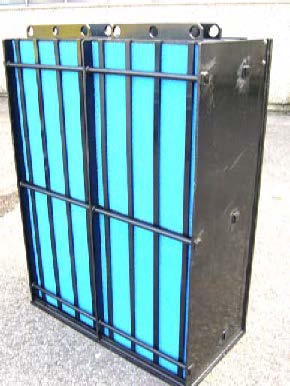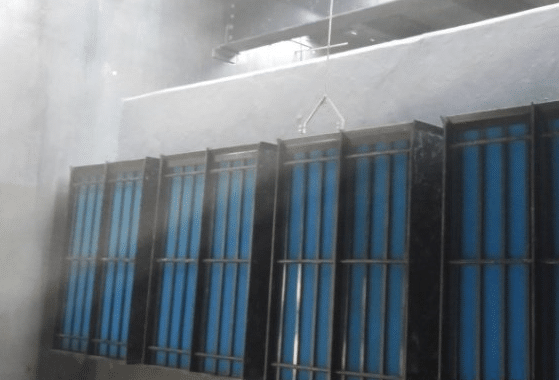Ever wondered how Washington D.C. keeps its waterways clean despite being busy? The secret is in a key piece of technology: Oil Water Separator Tanks District of Columbia. These tanks are essential for managing stormwater and controlling pollution in the city.
In the heart of DC, these tanks work hard to protect our environment. They are subject to strict rules, making sure they’re safe for the environment. From gas stations to industrial sites, these tanks are the first defense against water pollution.
Key Takeaways
- Freytech Inc. Oil water separator tanks are crucial for DC’s stormwater management
- Strict regulations govern the installation and maintenance of these tanks
- Underground storage tanks must comply with DC’s Fire Prevention Code
- Environmental compliance is a top priority for tank owners and operators
- Federal facilities in DC must also adhere to local tank regulations
Understanding Oil Water Separator Systems in DC
Oil water separator systems are key in fighting pollution and treating wastewater in Washington, DC. They manage industrial wastewater and keep the environment safe from harmful substances.
What Are Oil Water Separators?
Oil water separators are tanks made to take oil and grease out of water. They let oil float up while water goes to the bottom. This is important for cleaning industrial wastewater before it goes into the environment.
Types of Separator Tanks
There are many kinds of oil separation systems, like underground and above-ground tanks, and ones for radioactive materials. Each type is made for different wastewater problems, making sure treatment works well in many industries.
Stormwater Management and Environmental Protection
In DC, oil water separators are vital for managing stormwater. They stop oil and pollutants from getting into waterways when it rains. By catching these contaminants, they keep water clean and protect aquatic life.
It’s important to install and maintain oil water separator tanks right. Regular checks and cleanings keep them working well. This supports DC’s effort to protect the environment and control pollution.
DC Regulations for Underground Storage Tanks (USTs)
DC has strict rules for underground storage tanks to keep the environment safe. These rules cover different tank types and sizes. They also have specific rules for those who own and run the tanks.
Applicability of UST Regulations
Most underground storage tanks and UST systems in DC are covered by these rules. Both tank owners and operators must follow these rules. This makes sure these facilities are managed and maintained correctly.
Compliance with District Laws
DC laws require following fire prevention codes and environmental standards for USTs. These rules help prevent leaks, spills, and contamination. Regular checks and reports are important for following these rules.
Exemptions and Partial Applicability
Some tanks don’t have to follow all the rules. Hazardous waste tanks and wastewater treatment facilities are exempt. Heating oil tanks, small UST systems, and emergency generator tanks have some rules to follow.
It’s important for businesses and property owners in DC to know these rules. Following them helps protect the environment and avoids fines. Keeping up with changes in these rules is key to staying in compliance.
Oil Water Separator Tanks District of Columbia: Specific Requirements
Oil water separator tanks in DC are key for managing stormwater and controlling pollution. They must meet strict rules to work right and protect the environment.
In DC, tanks must stop leaks from corrosion or structural problems. They should be protected against corrosion or made of non-corrodible materials. The materials must also match what the tank holds.
If a tank leaks, owners must act fast and follow DC’s Chapter 56 rules. These rules help fix problems quickly and lessen harm to the environment.
Heating oil and emergency generator tanks have special rules based on their size and age. Smaller tanks have simpler rules, but bigger or older ones need more checks and better leak detectors.
Following these rules keeps oil water separator tanks working well. It also helps with stormwater management in the District of Columbia. Regular upkeep and following the rules keep these systems safe for local water.
Installation and Maintenance of Oil Water Separator Tanks
Putting in and keeping up oil water separator tanks in DC is key. Following the right standards makes sure they work well and meet rules. Let’s look at important parts of handling these systems.
Proper Installation Procedures
Installing tanks needs skill and following DC rules. Experts should do it right, making sure it’s in the right spot, connected well, and safe. Doing it right stops leaks and makes the system work better.
Routine Maintenance and Inspections
Keeping oil water separators in good shape is important. Have regular checks for any damage or wear. Clean parts, change filters, and make sure it separates oil and water well. Regular care makes the tank last longer and keeps it in line with DC rules.
Corrective Actions for Leaks and Releases
Quickly finding and fixing leaks is key for the environment. For tanks over 15 years old, use Statistical Inventory Control or Automatic Tank Gauging. If a leak happens, follow Chapter 56 rules to act fast. Quick action helps protect the environment and keeps with DC laws.
Environmental Compliance and Wastewater Treatment
Oil water separators are key for following environmental laws and treating wastewater in DC. They remove oil from water, making sure the water is safe to release. This is important for keeping pollution under control and protecting the environment.
Industries that handle industrial wastewater have to meet tough environmental rules. Advanced oil water separators help by separating fluids well with little upkeep. They work for flow rates from 1 to 100 GPM, fitting many industrial needs.
These separators are made of heavy-duty 304 stainless steel for lasting long. For sites with lots of solids, special features like slant rib clarification plates can be added. These make the separator better at dealing with tough wastewater.
Using good oil water separation systems helps businesses follow environmental laws and improve their wastewater treatment. This approach protects the environment and saves companies from fines for not following the rules.
Freytech Inc.: Advanced Oil Water Separator Solutions
Freytech Inc. is at the forefront of oil water separator technology in the District of Columbia. Their systems use advanced coalescing technology for top-notch separation. This leads to cleaner water discharge, going beyond what’s required by the industry.
Enhanced Coalescing Technology
The core of Freytech’s systems is their enhanced coalescing technology. This technology greatly improves separation efficiency. It ensures the removal of oil from water, resulting in cleaner discharge that meets strict environmental standards.
Separation Efficiency and Discharge Limits
Freytech’s separators are known for their high separation efficiency. They ensure a 5 PPM clean water discharge, which is better than the North American limit of 10 PPM. For more challenging situations, their systems can remove trace amounts of emulsified oil, achieving an impressive 0.1 PPM efficiency.
Customized Solutions for Various Industries
Freytech provides tailored solutions for different industries. Their separators can handle various oils like motor oil, diesel, gasoline, and jet fuel. This flexibility makes Freytech’s technology perfect for a broad range of applications in DC.
These separators are crucial in storm water systems. They process runoff to meet the US EPA’s Clean Water Act standards. With effective oily water treatment, facilities protect the environment and dodge big fines.

